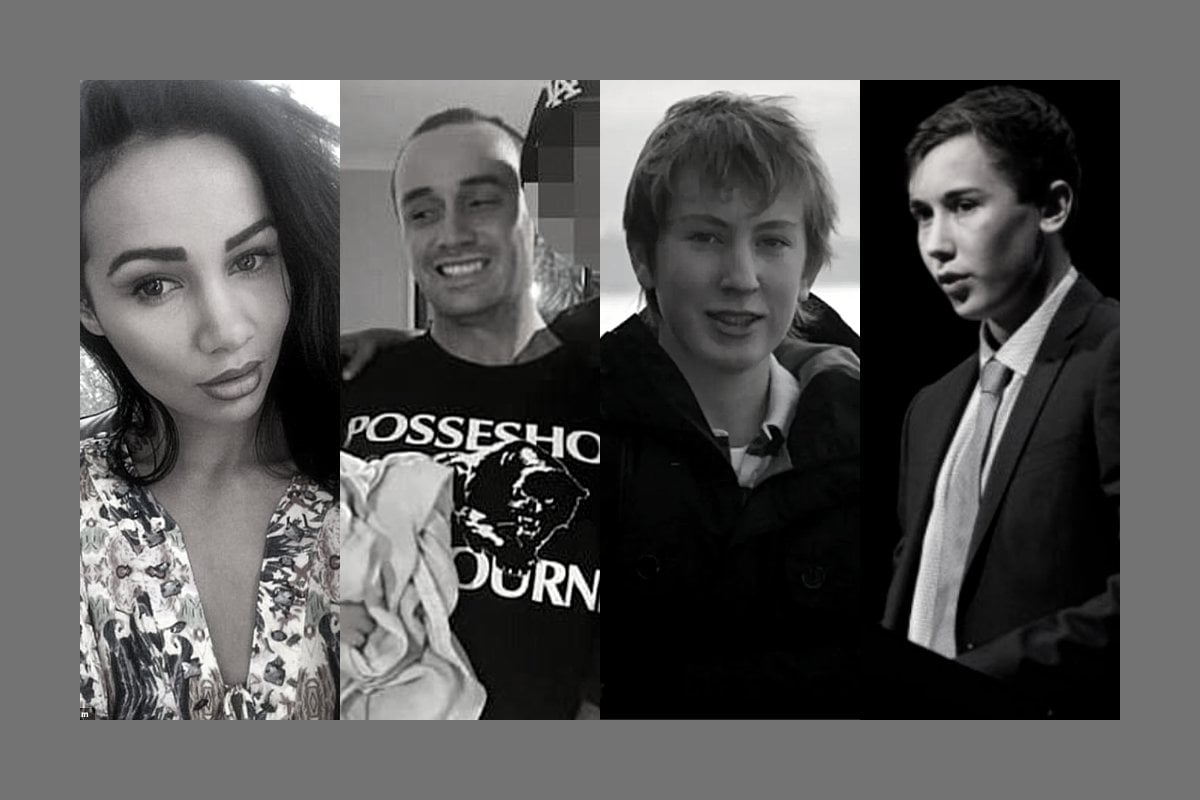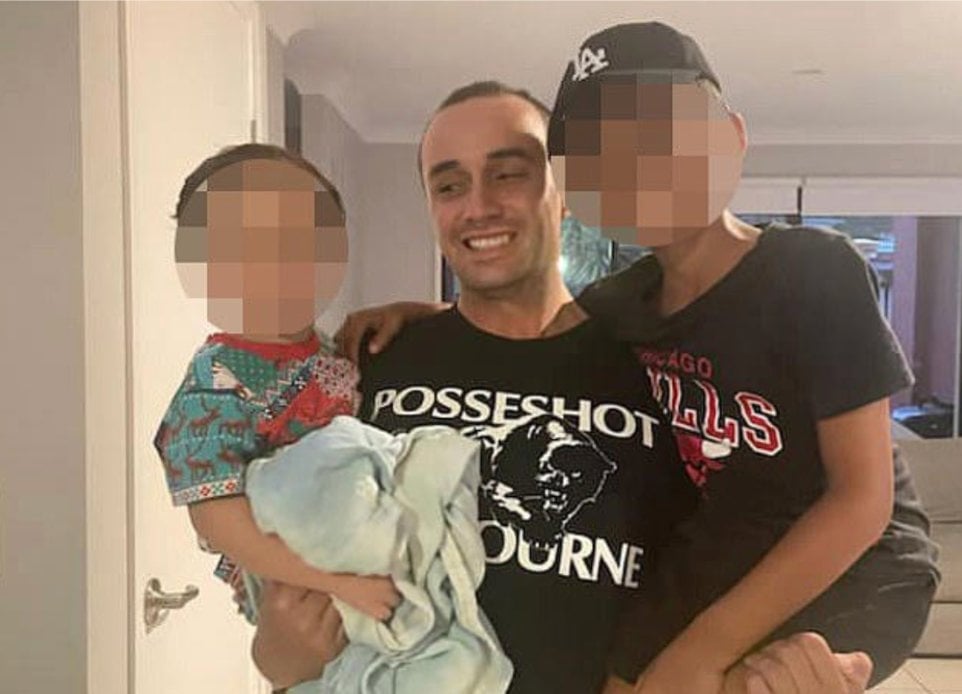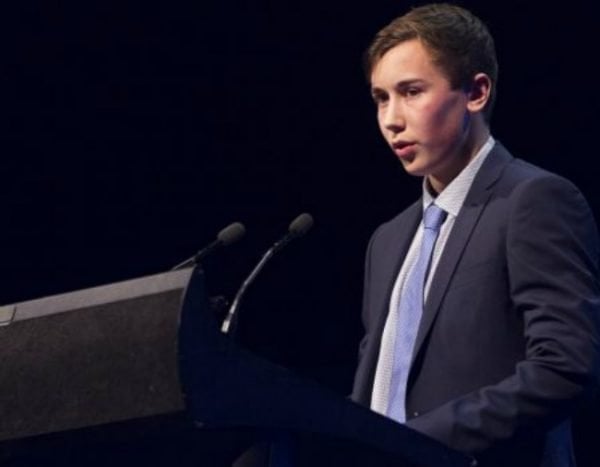
Content warning: This story discusses domestic violence and suicide, and may be distressing to some readers.
In the quiet of my room, I stare somberly at the array of photographs on my laptop screen. Images of two young Australian men who, mostly, probably lived very different lives, and yet, shared more in common than they would ever know.
My eyes drift across to the first picture, an image of a 30-year-old man with clipped, dark brown hair and a kind smile that sits just below a scattering of stubble. He wears a black shirt, the fabric of each shoulder covered by the small, soft hands of his two sons. I take in their cheeky grins; the innocence shining from their eyes as they pose for the camera with their dad Rikki.
 Rikki Brown with his children. Image: Facebook.
Rikki Brown with his children. Image: Facebook.

